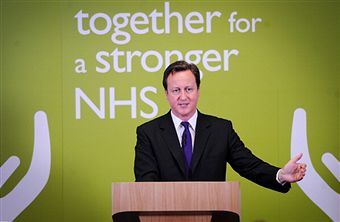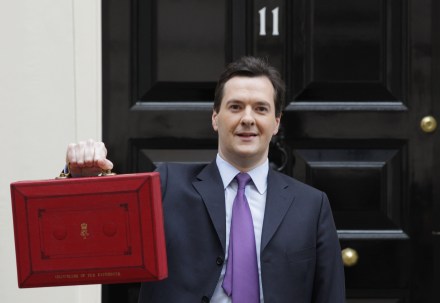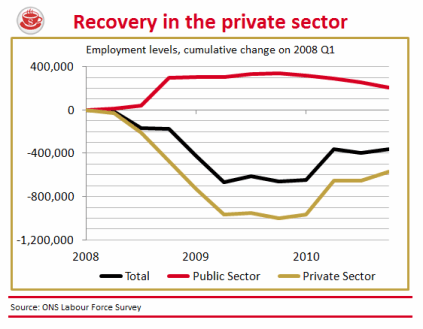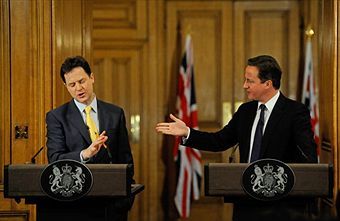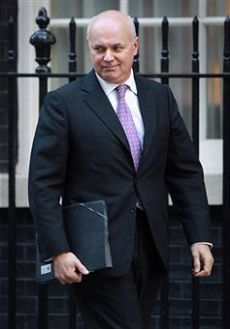Cameron must defeat Clegg and break the NHS’ monopoly
‘NHS good, private health bad’. ‘State good, market bad’. ‘Four legs good, two legs bad’. Whenever political leaders get into a tight corner they have to find allies fast. There is no time for reasoning to work its gentle magic. Basic sentiments need to be stirred and the popular favourite is usually hate. Yesterday Mr Clegg used this classic strategy to rebuild his support base. The cold-hearted Tories were at it again, dismantling that icon of compassion the NHS. In public they were declaring their undying love for it but out of sight they were promising fat profits for ‘health care corporations’ once the new law was passed. Mr Clegg
